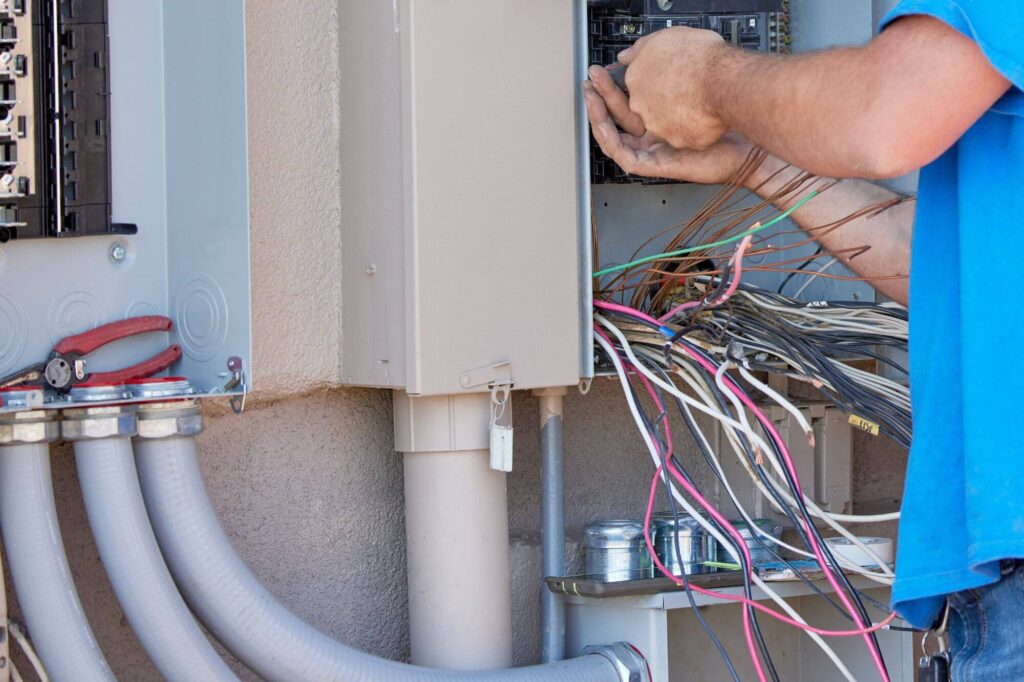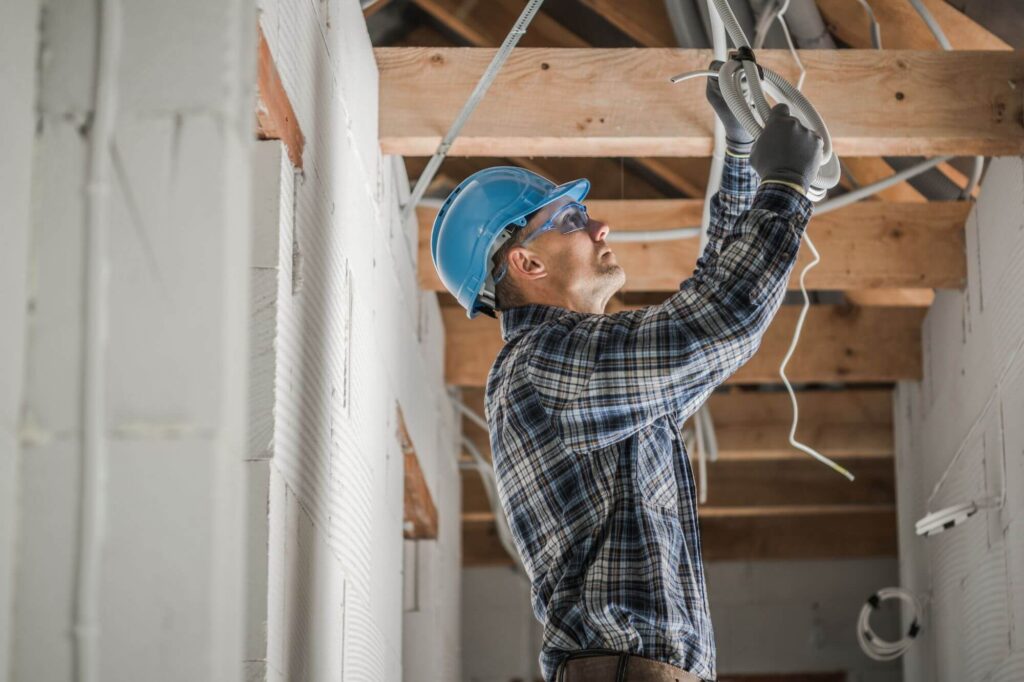Rewiring a house is a significant investment, but it’s essential to maintain safety, efficiency, and compliance with modern electrical standards. While homes don’t need rewiring on a strict schedule, it’s generally recommended for houses over 40 years old to undergo inspection and potential upgrades. Outdated electrical systems may not meet current energy demands, posing safety risks if not addressed.
Key Factors That Affect How Often Houses Need Rewiring
Age of the Home and Electrical System
Homes built more than 40 years ago may have aluminum wiring or fuse boxes that no longer meet modern electrical codes. As wiring systems degrade over time, their insulation can crack, increasing the risk of electrical fires or shock hazards.
Increased Electrical Demand
Adding home offices, smart lighting, or major appliances can overwork older wiring systems, leading to flickering lights or tripped circuit breakers. Rewiring sooner is often necessary for homes undergoing significant improvements to avoid disruptions and ensure safety.
Safety and Code Compliance
Newer building regulations prioritize safety, requiring older homes to upgrade electrical panels, receptacle circuits, and wiring systems to comply. If you plan to sell your home, ensuring your electrical system meets these requirements can boost its market value.
Signs It’s Time to Rewire Your Home
Frequent Electrical Issues
Recurring problems like loose connections, dimmer switches not working correctly, or tripping circuit breakers are common indicators that your system is struggling to keep up.
Visible Warning Signs
If you notice discolored outlets, sparking sockets, or a persistent burning smell, these are clear signs that faulty wiring must be addressed immediately to avoid fire hazards.
Outdated Wiring Systems
Older homes often contain two-prong outlets or aluminum wiring instead of safer copper wiring. If your home still uses a fuse box, an upgrade to a modern circuit breaker panel should be prioritized.
Electrical Inspections for Older Homes
Homes older than 40 years should undergo routine electrical inspections to detect any damaged electrical wiring or cracked insulation. Identifying problems early can prevent costly repairs and keep your family safe.
How Long Does Rewiring a House Take?

A whole-house rewire typically takes 5 to 10 days, but the project timeline depends on the home’s size and layout. The process may be extended if the existing wiring is challenging to access behind walls. For homeowners planning significant home improvements, it’s often best to schedule rewiring during renovation work to minimize disruption.
How Much Does Rewiring a House Cost?
The cost of rewiring a house varies, influenced by factors like home size, labor rates, and the choice of materials (e.g., copper wiring is more expensive than aluminum wiring). Check out our article on house rewiring costs in San Francisco for a deeper breakdown of rewiring expenses in the San Francisco Bay Area.
Why You Should Hire a Professional Electrician
Avoiding Risks and Hazards
Attempting DIY electrical work increases the likelihood of safety hazards such as electric shocks or fire hazards. A professional electrician ensures all house wiring is installed safely and complies with code.
Long-Term Value and Compliance
A licensed electrician will inspect electrical service panels, replace damaged wiring, and perform upgrades to meet modern requirements. Adding additional outlets, dimmer switches, or smart lighting during a rewire ensures your home remains functional for years.
Keep Your Home Safe with Timely House Rewiring
Regular rewiring keeps your home safe, efficient, and capable of meeting modern electrical demands. If you own a home built more than 40 years ago or notice warning signs such as flickering lights or discolored outlets, it’s time to consider rewiring.
Contact Andrade Link Electric for expert advice and a thorough electrical inspection. Our professional electricians will help you plan your rewire efficiently, ensuring your home stays safe and up to code for years.



